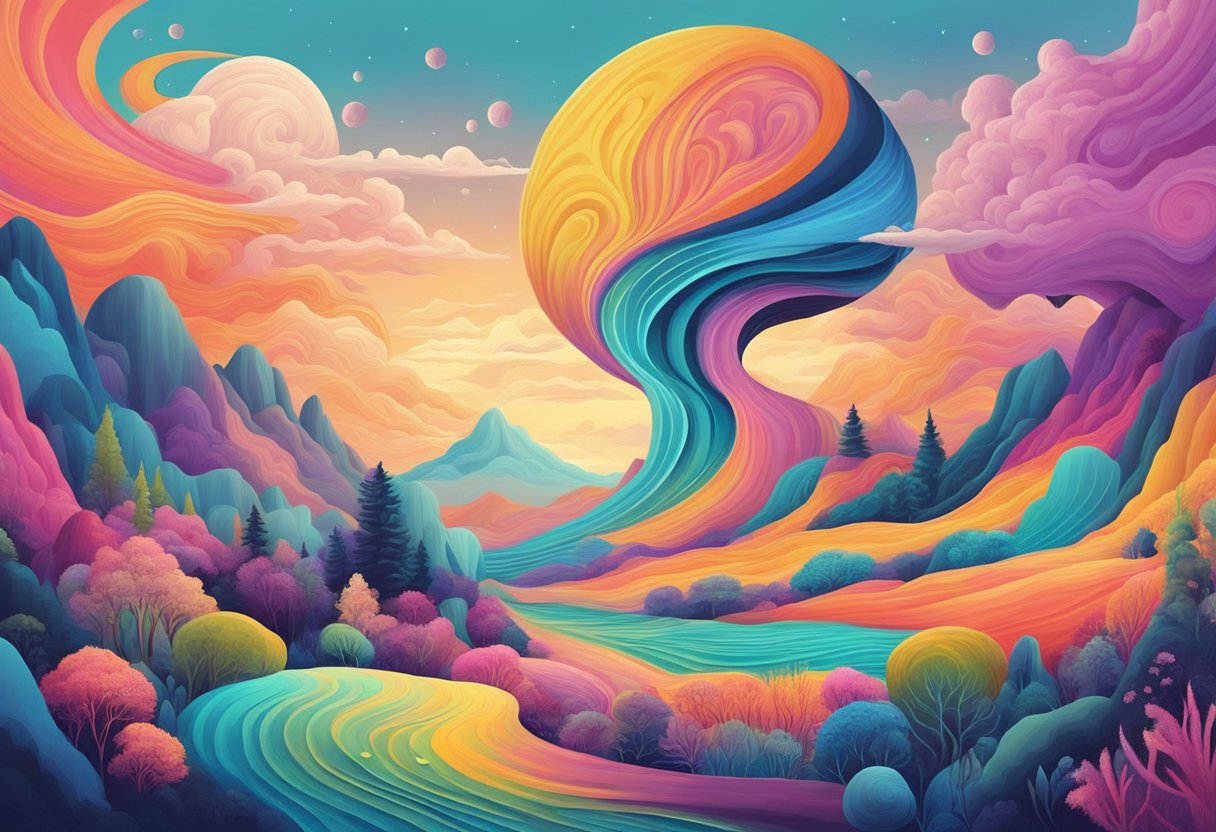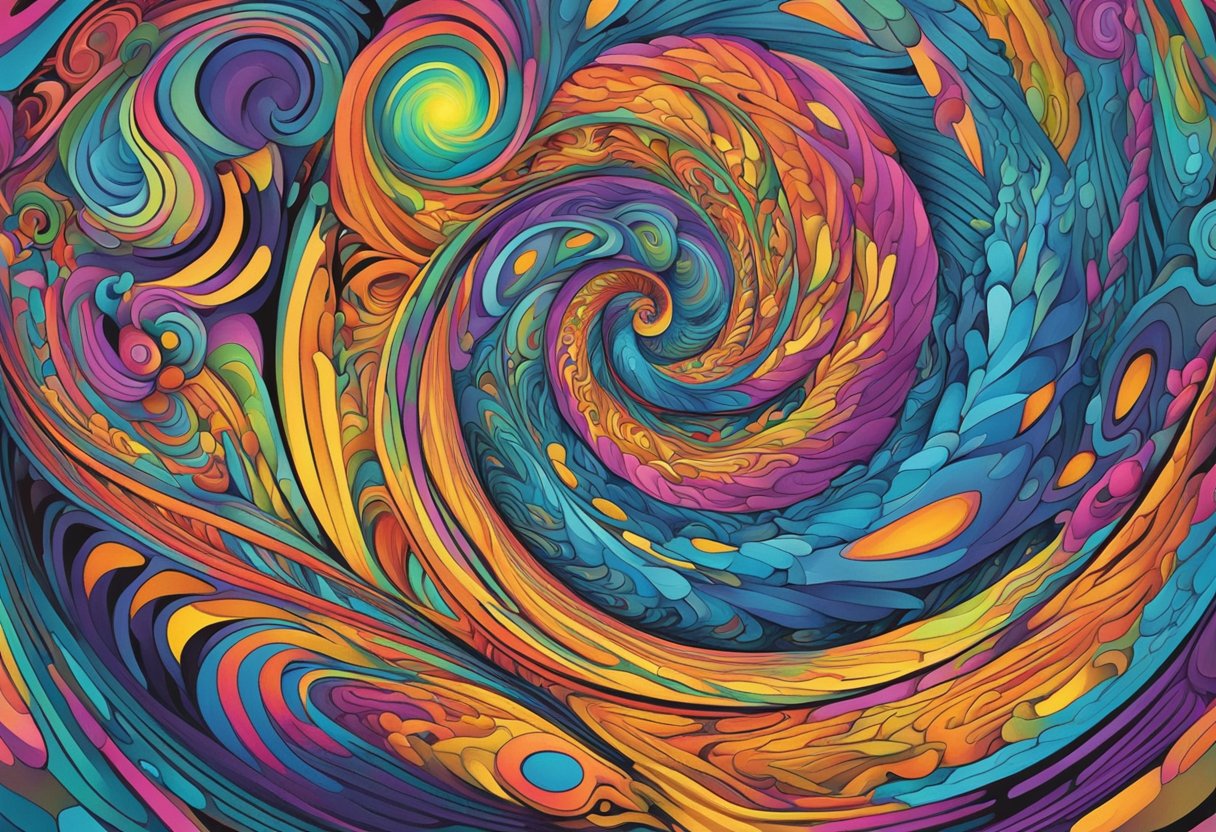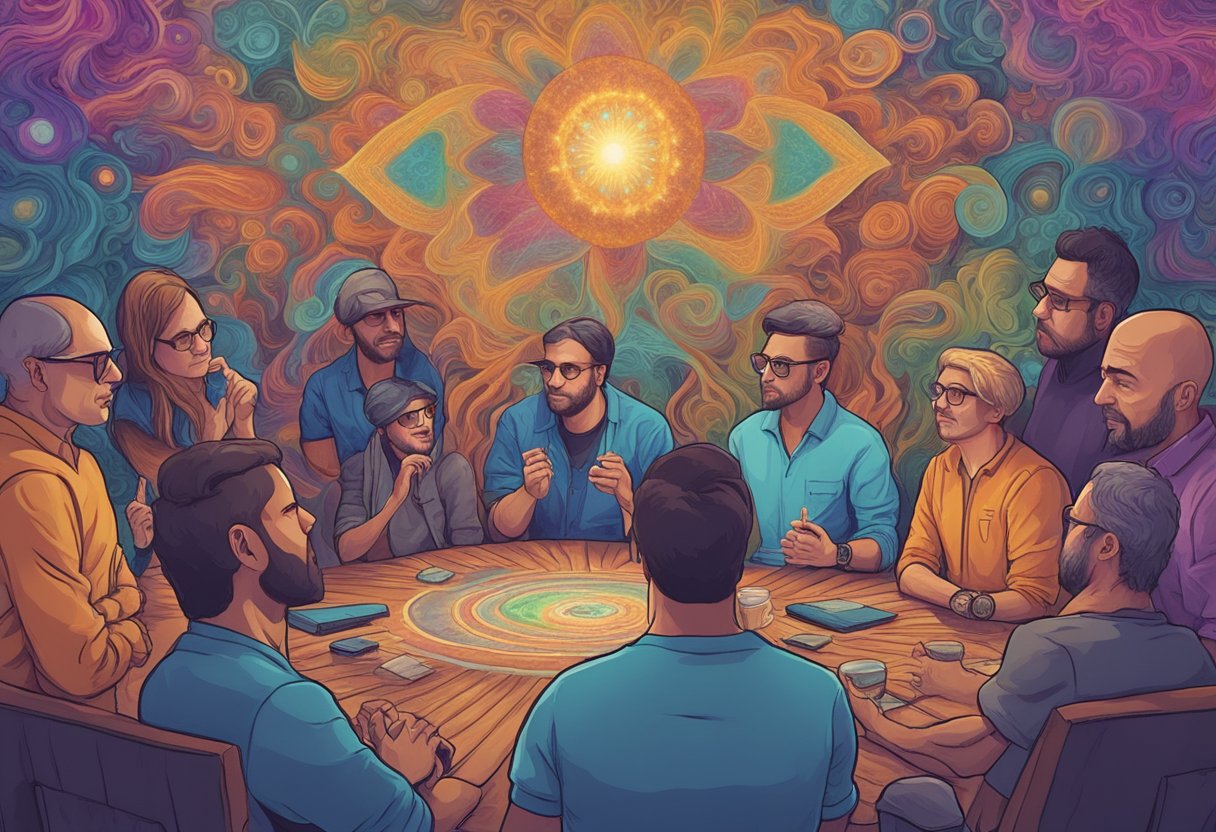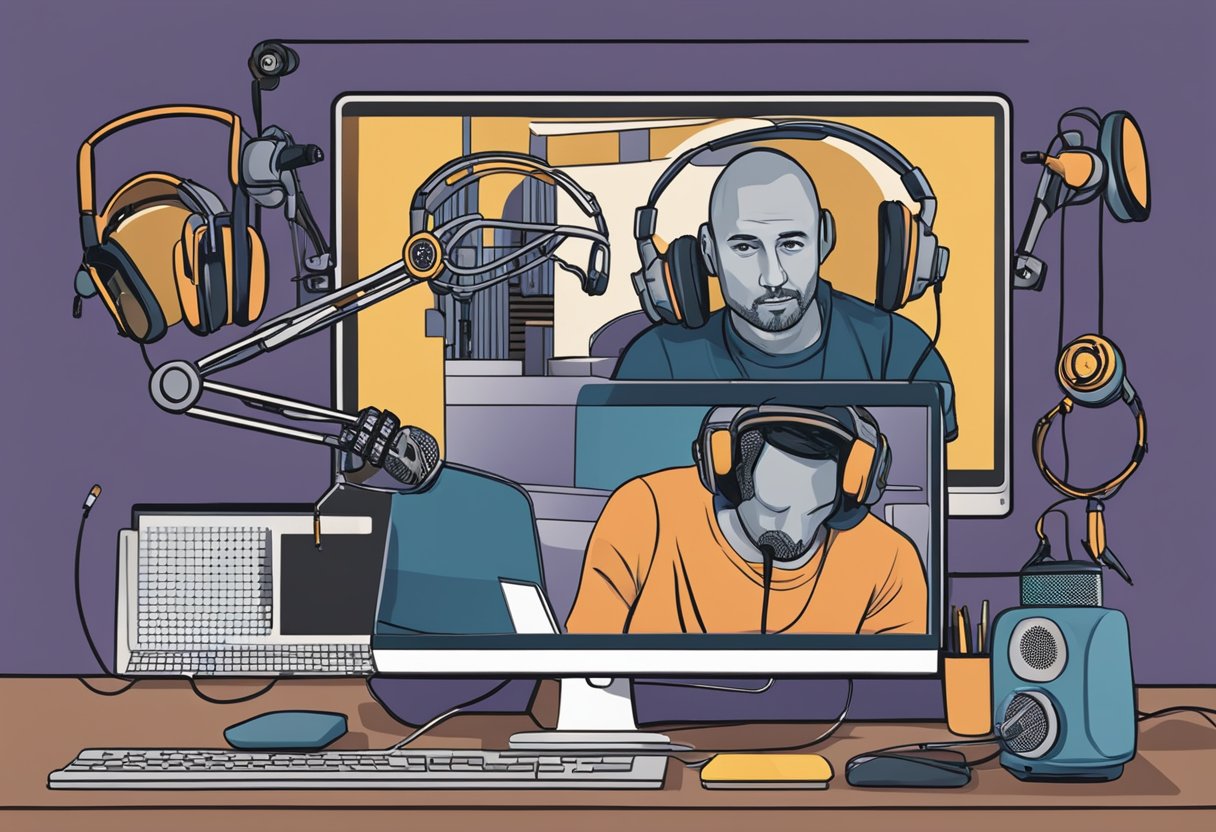DMT, or dimethyltryptamine, is a naturally occurring psychedelic drug that has been gaining popularity in recent years. One of the most vocal proponents of DMT is Joe Rogan, the comedian and host of the popular podcast The Joe Rogan Experience. Rogan has spoken extensively about his own experiences with the drug and has interviewed numerous guests about their experiences as well.

Rogan's interest in DMT has helped to bring this powerful substance into the mainstream consciousness. However, the drug remains controversial and illegal in many parts of the world. Despite this, researchers are beginning to explore the potential therapeutic benefits of DMT and other psychedelics, particularly in the treatment of mental health disorders such as depression and anxiety.
Key Takeaways
- DMT is a naturally occurring psychedelic drug that has gained popularity in recent years.
- Joe Rogan, the host of The Joe Rogan Experience podcast, has been a vocal proponent of DMT and has spoken extensively about his experiences with the drug.
- While DMT remains illegal in many parts of the world, researchers are beginning to explore its potential therapeutic benefits in the treatment of mental health disorders.
Joe Rogan and Psychedelics
Rogan's Psychedelic Experiences
Joe Rogan is a well-known advocate for the use of psychedelics, particularly DMT. He has spoken publicly about his experiences with various hallucinogens, including LSD, psilocybin mushrooms, ayahuasca, and 5-MeO-DMT. Rogan has described his experiences as transformative and has credited psychedelics with helping him to overcome personal issues and gain a greater understanding of the world.
One of Rogan's most notable experiences was with DMT, a powerful hallucinogen that is often described as one of the most intense psychedelic experiences one can have. Rogan has spoken at length about his experiences with DMT, describing it as a "profoundly positive" experience that allowed him to "visit other dimensions" and gain a greater understanding of the universe.
Promotion of Psychedelics on Podcast
Rogan has used his popular podcast, The Joe Rogan Experience, to promote the use of psychedelics and to educate his listeners about their potential benefits. He has interviewed a number of experts on the subject, including Michael Pollan, author of "How to Change Your Mind: What the New Science of Psychedelics Teaches Us About Consciousness, Dying, Addiction, Depression, and Transcendence."
During these interviews, Rogan and his guests have discussed the potential uses of psychedelics in treating various mental health issues, including depression, anxiety, and addiction. They have also talked about the need for more research into these substances and the importance of responsible use.
Overall, Rogan's promotion of psychedelics has sparked a wider conversation about the potential benefits of these substances and has helped to reduce the stigma surrounding their use. While there is still much to learn about the effects of psychedelics, Rogan's advocacy has helped to bring these substances into the mainstream and has encouraged more people to explore their potential benefits.
DMT: The Spirit Molecule
DMT: The Spirit Molecule is a documentary that explores the psychedelic and entheogenic drug N,N-Dimethyltryptamine (DMT) through the lens of interviews with those who have used the drug, either as part of Strassman's scientific studies, or in combination with MAOIs (as ayahuasca) [1]. The documentary is directed by Mitch Schultz and starring Joe Rogan as a narrator [1].
Understanding DMT
DMT is a naturally occurring psychedelic compound that is found in many plants and animals [2]. It is a powerful hallucinogenic drug that produces intense, short-lived psychedelic experiences when ingested [2]. DMT is classified as a Schedule I drug in the United States, which means that it is illegal to manufacture, distribute, or possess [2].
DMT and Consciousness
DMT has been linked to altered states of consciousness, including mystical experiences, spiritual awakenings, and near-death experiences [3]. Some researchers have theorized that DMT may be involved in the production of dreams and the near-death experience [3]. DMT has also been found to affect the default mode network (DMN) in the brain, which is responsible for self-referential thoughts and mind-wandering [4].
Overall, the documentary "DMT: The Spirit Molecule" provides an insightful look into the powerful effects of DMT on the human consciousness. While there is still much to be learned about this enigmatic "spirit molecule," the documentary offers a fascinating glimpse into the world of psychedelic research and altered states of consciousness.
References:
- DMT: The Spirit Molecule - Wikipedia
- DMT - Drug Enforcement Administration
- The Spirit Molecule: A Doctor's Revolutionary Research into the Biology of Near-Death and Mystical Experiences - Rick Strassman
- DMT alters brain activity and functional connectivity - Scientific Reports
Psychedelics and Mental Health
Psychedelics as Treatment
Psychedelics have been used for centuries in spiritual and cultural practices. In recent years, they have gained attention as a potential treatment for mental health disorders. Joe Rogan has been a vocal advocate for the use of psychedelics, particularly DMT, in treating depression, anxiety, addiction, and PTSD.
Research has shown that psychedelics can have profound effects on the brain. They can increase the connectivity between different regions, leading to a more integrated and flexible brain. This increased connectivity can lead to a decrease in symptoms of depression and anxiety.
Johns Hopkins University has been at the forefront of the new science of psychedelics. They have conducted studies on the use of psilocybin, the active ingredient in magic mushrooms, in treating depression and anxiety. The results have been promising, with many participants experiencing significant improvements in their symptoms.
Science Behind Psychedelics
The science behind psychedelics is complex and not fully understood. However, researchers believe that psychedelics work by affecting the serotonin system in the brain. Serotonin is a neurotransmitter that is involved in regulating mood, sleep, and appetite.
MDMA and ketamine are two other drugs that are being studied for their potential in treating mental health disorders. MDMA, also known as ecstasy, has been shown to be effective in treating PTSD when used in conjunction with therapy sessions. Ketamine has been shown to have rapid anti-depressant effects, making it a promising treatment for depression.
While the use of psychedelics in treating mental health disorders is still in its early stages, the research is promising. With more studies being conducted, it is possible that psychedelics could become a mainstream treatment option for those suffering from depression, anxiety, addiction, and PTSD.
Psychedelics in Popular Culture

Psychedelics have been a part of popular culture for decades, but in recent years their popularity has surged. Thanks in part to the work of advocates like Michael Pollan, author of the book "How to Change Your Mind" and the subsequent Netflix documentary by the same name, psychedelics have entered the mainstream conversation.
Psychedelics and Silicon Valley
Silicon Valley has been at the forefront of the psychedelic renaissance, with many tech executives and entrepreneurs touting the benefits of psychedelics for creativity and problem-solving. The late Steve Jobs famously credited his use of LSD with opening up his mind and allowing him to think outside the box. Other tech luminaries like Tim Ferriss and Naval Ravikant have also spoken publicly about their use of psychedelics.
Psychedelics in Media
In addition to the documentary "How to Change Your Mind," psychedelics have been featured in a number of other media projects. The podcast "The Joe Rogan Experience" has had a number of guests on to discuss their experiences with psychedelics, including former heavyweight champion Mike Tyson and famed ethnobotanist Terence McKenna, who popularized the "Stoned Ape Theory" of human evolution.
Overall, psychedelics have become an increasingly popular topic in popular culture, with more and more people exploring their potential benefits for personal growth and well-being.
The Controversy Surrounding Psychedelics

Psychedelics have been a topic of controversy for decades. While some people tout their benefits, others are concerned about their potential risks and misuse. In recent years, the use of psychedelics has gained more attention, particularly with the rise of podcasts and media personalities like Joe Rogan discussing their experiences with substances like DMT.
Legal Status of Psychedelics
Many psychedelics, including DMT, are considered Schedule I substances under the US Controlled Substances Act. This means that they are deemed to have a high potential for abuse and no currently accepted medical use. However, there has been a growing movement to legalize or decriminalize psychedelics, particularly for medical or therapeutic purposes.
Potential Risks and Misuse
While some people report positive experiences with psychedelics, there are also potential risks associated with their use. Psychedelics can have profound effects on the mind and body, and some people may experience adverse reactions or long-term negative effects. In addition, there is a risk of misuse or abuse, particularly when these substances are obtained illegally or used without proper guidance or supervision.
One potential concern is the impact of psychedelics on the liver. Some studies have suggested that certain psychedelics, including DMT, can cause liver damage or dysfunction. However, more research is needed to fully understand the relationship between psychedelics and liver health.
Another potential concern is the interaction between psychedelics and serotonin. Psychedelics can affect serotonin levels in the brain, which could potentially lead to serotonin syndrome when combined with other drugs that also affect serotonin, such as SSRIs.
Finally, there is concern about the use of psychedelics in individuals who have experienced trauma. While some people report positive effects from using psychedelics to address trauma, there is also a risk of re-traumatization or exacerbation of symptoms.
Overall, while psychedelics like DMT may hold promise for medical or therapeutic use, it is important to approach their use with caution and under the guidance of trained professionals.
Conclusion

In conclusion, Joe Rogan's experience with DMT has been a topic of interest for many individuals. He has spoken about his experiences with the substance on his podcast, the Joe Rogan Experience, and has also had guests on the show who have shared their own experiences with DMT.
While DMT can produce mystical experiences and feelings of transcendence, it is important to note that it is a powerful substance that should be used with caution. Inhaling DMT can be intense and overwhelming, and it is important to have a guide or sitter present to ensure safety.
Joe Rogan's interest in DMT is not limited to the substance itself, but also extends to the science behind it. He has had guests on his show who have discussed the effects of DMT on the brain and its potential therapeutic uses.
It is also worth noting that Joe Rogan's interests are not limited to DMT. He has also spoken about his experiences with magic mushrooms and mescaline, as well as his interest in meditation and improving oneself.
Overall, Joe Rogan's platform has provided a space for individuals to discuss a wide range of topics, including DMT, politics, sports, and more. His content has been a valuable resource for those looking to expand their knowledge and improve their understanding of the world around them.
Frequently Asked Questions

What are the potential side effects of using DMT?
Like any other psychedelic substance, DMT use can cause a range of side effects. These can include anxiety, paranoia, fear, and panic. Additionally, DMT can cause physical symptoms such as increased heart rate, high blood pressure, and dilated pupils. It is important to note that the effects of DMT can vary widely depending on the individual, the dose, and the setting in which it is used.
What is the relationship between DMT and depression?
There is some evidence to suggest that DMT may have antidepressant effects. However, more research is needed to fully understand the relationship between DMT and depression. It is also important to note that the use of DMT as a treatment for depression is not currently approved by any regulatory agency.
What is the DMT realm, and what does it consist of?
The "DMT realm" is a term used to describe the subjective experiences that people report having while under the influence of DMT. These experiences can include vivid visual hallucinations, a sense of timelessness, and encounters with seemingly intelligent entities. Some users describe the DMT realm as a place of profound spiritual or mystical significance.
What are the visual experiences associated with DMT use?
DMT use can cause a range of visual experiences, including vivid colors, geometric patterns, and fractal imagery. These visual hallucinations are often described as being more intense and immersive than those associated with other psychedelics.
What are the entities that people report encountering while using DMT?
Many people who use DMT report encountering seemingly intelligent entities during their experiences. These entities can take on a wide range of forms, from humanoid beings to animal-like creatures to abstract shapes and patterns. The nature of these entities and their relationship to the user's psyche is a subject of much debate and speculation.
Where in the body is DMT naturally found, and what is its function?
DMT is naturally found in a variety of plants and animals, including humans. It is believed to be produced in the pineal gland, a small gland located in the brain. The function of DMT in the body is not well understood, but it is thought to play a role in regulating mood, perception, and consciousness.
Related posts:
- Joe Rogan and the Stoned Ape Theory: A Deep Dive into the Controversial Hypothesis
- Ayahuasca and Joe Rogan: Exploring the Controversial Plant Medicine
- Best JRE Drug Episodes: Unveiling Powerful Conversations on Psychedelics & Mindfulness
- Joe Rogan on Weed: Unraveling the Comedian’s Thoughts on Marijuana and Legalization
